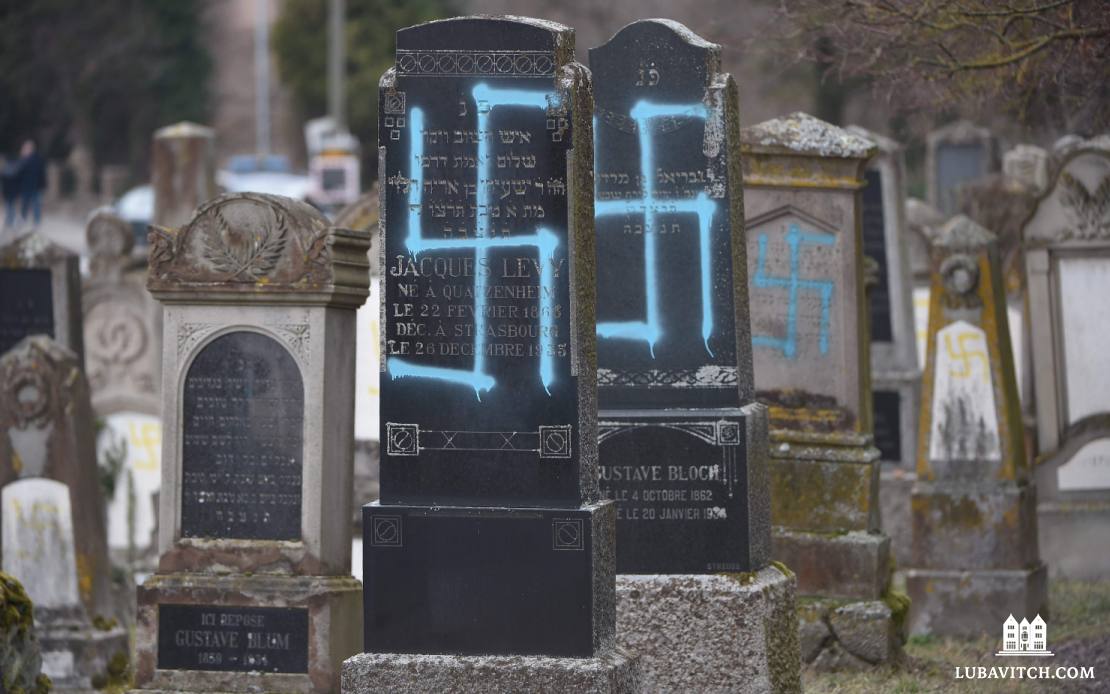In 1962, Harvey Swados, an American novelist and social critic, visited the Lubavitcher Rebbe. He wanted the Rebbe’s opinions on issues related to the Holocaust.
Swados’s account of that discussion, which appeared in The New York Times some thirty years later, is of particular interest today, as anti-Semitism is once again normalized on the streets of major cities and campuses across the country.
He began the conversation by asking the Rebbe about the behavior of the German masses. Much to the novelist’s surprise, the Rebbe “made no reference to abstractions, whether theological or philosophical. He pointed instead to political realities.”
Swados asked the Rebbe whether it was his opinion, then, “that the tragedy was not a unique visitation upon the Jewish people, and that it could happen again?”
“Morgen in der fruh. Tomorrow morning,” he said without hesitation. A surprising statement, perhaps, coming from the Rebbe, who was renowned for his unflappable optimism.
And when Swados asked the Rebbe why he was so certain of this, the Rebbe “did not speak mystically, nor did he harp on the German national character and its supposed affinity for Jew-hatred.
“Rather, he insisted upon the Germans’ obedience to authority and their unquestioning carrying out of orders—even the most bestial—as a cultural-historical phenomenon that was the product of many generations of deliberate inculcation.”
The Rebbe then turned the questions to his visitor, and asked him how he explains “the survival of Judaism over three millenia.” In response, Swados pointed to “the negative force of persecution [that] has certainly driven people together.” He wasn’t sure, he said, if in the absence of such persecution, our Jewishness would not disintegrate.
The social critic may have been onto something.
After all, Jews do band together when they are threatened. Under attack, Jews from diverse streams will band together. Students will come to Chabad and other Jewish venues. People who’ve never sought out Jewish community spaces before look for ways to give and gain support. And that solidarity is commendable.
But it makes one wonder: what would happen to Jewish continuity if we were not isolated by such hatred? Is persecution somehow essential to the project of Jewish continuity?
Now, as the negative forces loom large, it is good to remind ourselves that Jewish life grows not out of negative energy, but rather from the fertile forces of a community that shares a commitment to our historic values, that draws strength, vitality and real joy from our intellectual and spiritual heritage.
By now, the response of Chabad shluchim to every negative event is familiar, to the point, perhaps, of it sounding like a cliché. But increasing in acts of goodness really does underscore our conviction that we do not need to be persecuted to be Jewish; that we draw our strength and our vitality from light.
A negative force, the Rebbe insisted, in his conversation with Mr. Swados, could not possibly be the only answer to our continuity.

Lyn Greene
The thought that Judaism can only continue to exist if it is under siege makes me feel angry. Love exists without being under siege as does beauty, nature. Why then to presume that Judaism alone cannot stand in the absence of antisemitism? New thought is needed to guide Jewish community and growth of Jewish pride. Jews as gentle people might be a new concept but certainly a concept to thrive.
susy hoffmann
I wish the Rebbe was right.If you see all the political demonstrations we have at the moment.The right wing hates the left and vice-versa! We are also under siege with the Corona ! This does not make”gentle people but as you write a concept to thrive~!